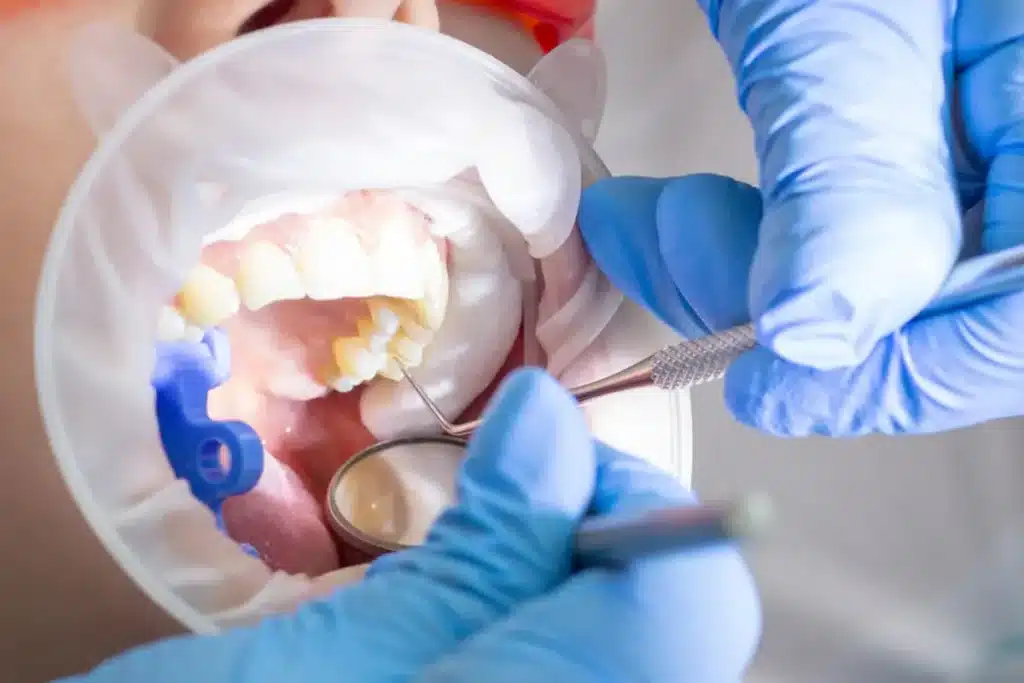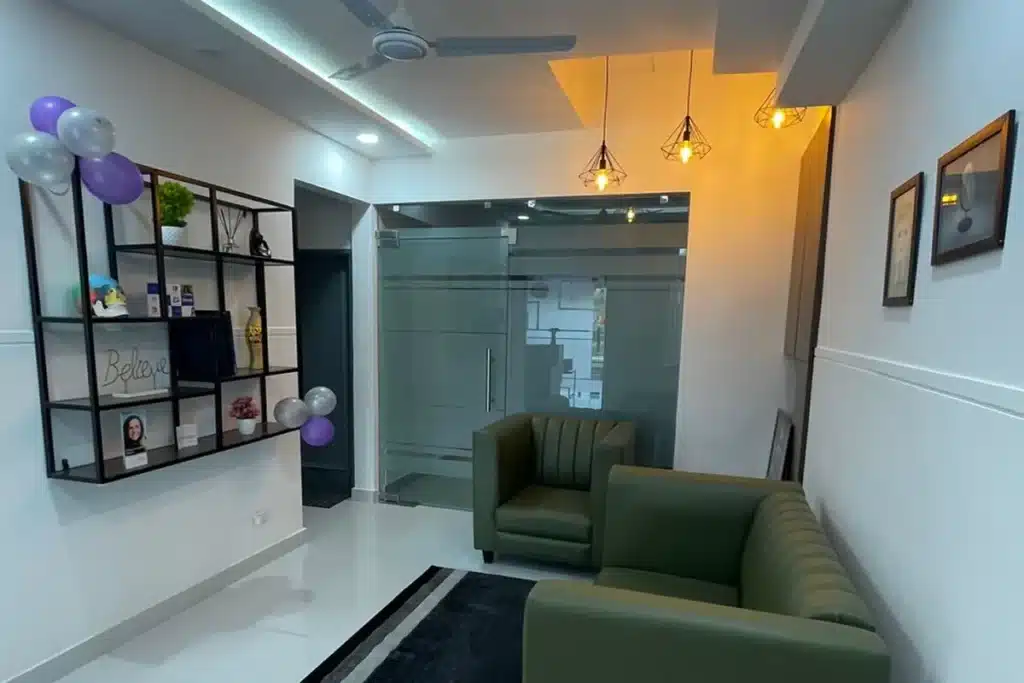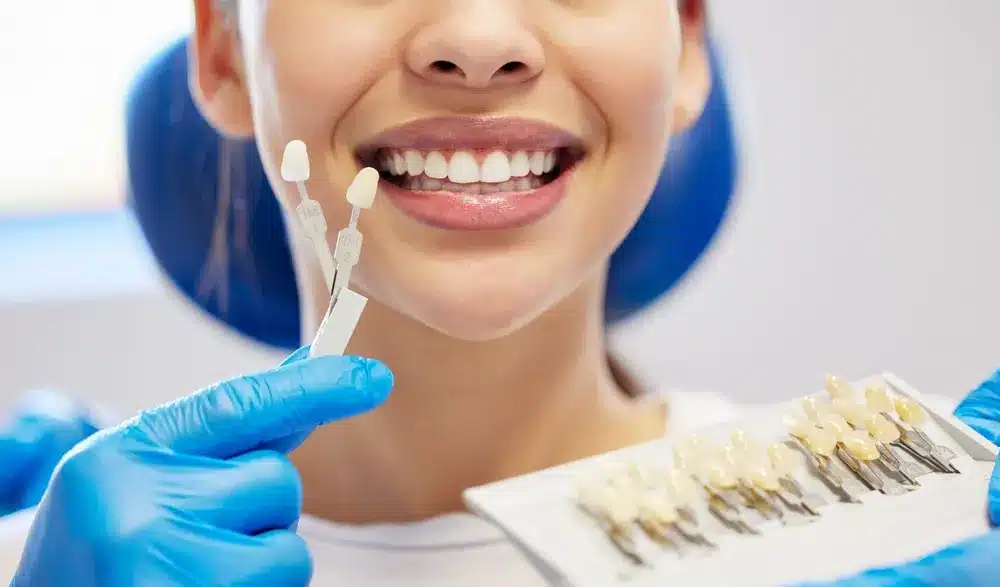Fear of pain shouldn’t stand between you and saving a natural tooth. Today’s root canal treatment (RCT) is a far cry from the old stories — with modern anesthesia, lasers, rotary instruments and microscope-assisted techniques, most patients experience little to no pain during the procedure and very mild discomfort afterward. If you live in Jammu and are looking for a comfortable, predictable RCT, this guide explains everything — clearly and simply.
Why choose root canal treatment instead of extraction?
Saving your natural tooth is almost always the best option when possible. A successful RCT:
- Preserves natural chewing function and appearance.
- Prevents bone loss that follows extraction.
- Avoids the time/cost and maintenance of prosthetic replacements (bridges, dentures).
- Helps maintain the alignment of neighboring teeth.
- Modern RCTs focus on complete disinfection and preservation of tooth structure — which means better long-term outcomes for your smile
What makes an RCT “painless”?
Painless” in dentistry does not mean there’s no sensation — it means the procedure is performed so that you feel minimal or no pain. Key elements include:
- Effective local anesthesia — precise nerve blocks and modern anesthetic agents numb the tooth thoroughly. dentalclinicdelhi.com
- Calm, evidence-based protocols — experienced endodontists follow steps that reduce trauma and postoperative pain. Total Health Dental Care
- Microscope-assisted visualisation — an operating microscope gives incredible magnification so the dentist can find and clean every canal, reducing missed anatomy and complications. Maximus Dental
- Advanced instruments (rotary NiTi files & irrigation systems) — these clean and shape canals efficiently and gently. Advanced Dental Clinic East Delhi
- Optional lasers and disinfection tools — lasers and newer disinfection methods can improve cleaning and reduce the need for multiple visits. (Recent Indian centres and teaching hospitals are adopting laser-assisted RCT for faster, less painful treatments.)
Step-by-step: What to expect at Esthetic Edge (typical painless RCT flow)
- Comprehensive exam & 3D/CBCT or intraoral X-rays — we assess the tooth, surrounding bone and the root anatomy to plan accurately. Esthetic Edge Dentistry
- Comfort measures & anxiety control — topical numbing gel, painless injections, and for anxious patients, sedation options (nitrous oxide/conscious sedation) are available.
- Rubber dam isolation — the tooth is isolated with a rubber dam for infection control and a dry, safe working field.
- Microscope-assisted cleaning — under magnification, the dentist locates all canals, removes infected pulp and shapes canals using rotary systems.
- Irrigation & disinfection — canals are disinfected with modern irrigants; adjunctive methods (sonic/ultrasonic activation, lasers in select cases) help eliminate bacteria.
- Filling & sealing — canals are sealed permanently with biocompatible root filling material and a tight coronal restoration is planned (crown if needed).
- Aftercare & follow-up — mild painkillers for a day or two if needed; revisit for a permanent crown restoration to protect the tooth long-term
Benefits of choosing a painless, microscope-assisted RCT
- Higher success rates — magnification reduces missed canals and improves disinfection, which directly improves outcomes.
- Less postoperative pain — gentle techniques and complete disinfection mean smoother recoveries.
- Fewer visits possible — many cases can be completed in a single visit when appropriate. This is convenient for busy patients in Jammu.
- Conservation of tooth structure — modern instruments preserve more healthy tooth, allowing a stronger final restoration.
Is single-visit RCT safe?
Yes — when the tooth can be fully cleaned and disinfected in one sitting and the patient is comfortable, single-visit RCTs are a validated option that reduce the number of appointments and speed recovery. Your endodontist will decide based on the infection severity and canal anatomy
Common myths — debunked
- Myth: “Root canals are always painful.”
- Fact: With modern anesthesia and techniques, most patients report little to no pain during treatment. Any post-op soreness is usually mild and short-lived.
- Myth: “It’s better to extract and replace the tooth.”
- Fact: Extracting a tooth creates long-term problems (bone loss, drifting teeth). A successful RCT preserves the tooth and function.
- Myth: “Root canal causes systemic disease.”
- Fact: Extensive research does not support this; saving an infected tooth with proper disinfection is better for oral health and overall wellbeing. (Professional bodies and evidence-based dentistry support RCT when indicated.)
Who is a good candidate for painless RCT?
- Deep cavities reaching the nerve.
- Severe toothache or sensitivity that keeps returning.
- Swelling or abscess near a tooth.
- Trauma/chipped tooth where pulp is exposed.
- Darkened/discoloured teeth due to past injury.
- A thorough clinical exam and imaging at Esthetic Edge will determine whether RCT is the recommended treatment
Aftercare tips — for a smooth recovery
- Take prescribed painkillers/antibiotics as directed.
- Avoid chewing on the treated side until the final restoration (crown) is in place.
- Maintain gentle oral hygiene — soft brushing and saltwater rinses if needed.
- Report persistent swelling, fever, severe pain, or discharge — these may require urgent attention.
- Visit for the crown or permanent filling to protect the tooth long-term
Why Esthetic Edge Multispeciality Dental Clinic, Jammu?
Esthetic Edge combines local care with modern technology: microscope-assisted endodontics, evidence-based protocols and a patient-first approach. Our team focuses on comfort and clear communication so you understand each step of your treatment. For folks in Jammu, choosing a clinic that uses advanced visualization and follows current best practices improves the odds of a long-lasting, painless result. See our clinic RCT overview for details.
Contact Esthetic Edge (Jammu) — phone and appointment details are available on our site; call to schedule a consultation and discuss painless options tailored to you.
FAQs (quick answers)
Q: Will I be unconscious during the procedure?
A: Most RCTs use local anesthesia so you remain awake but numb. Sedation is available for anxious patients
Q: How long does a typical RCT take?
A: Single-visit RCTs often take 60–90 minutes; complex cases may need additional time or visits
Q: Is RCT expensive?
A: Costs vary by clinic, tooth complexity and whether adjuncts (CBCT, microscope, laser) are used. Consider cost vs long-term value of saving your natural tooth.
Q: What are the risks?
A: As with any procedure: transient pain, need for retreatment if bacteria persist, or rare instrument fracture. Choosing an experienced endodontist reduces risk
Final note — don’t let fear decide for your smile
Root canal therapy today is predictable, comfortable and focused on preserving your tooth and health. If you’re in Jammu and searching for a pain-free, modern RCT, book a consultation at Esthetic Edge Multispeciality Dental Clinic — we’ll explain your options, the estimated timeline, and the steps we take to keep you comfortable. Call the clinic or visit our RCT page to learn more




